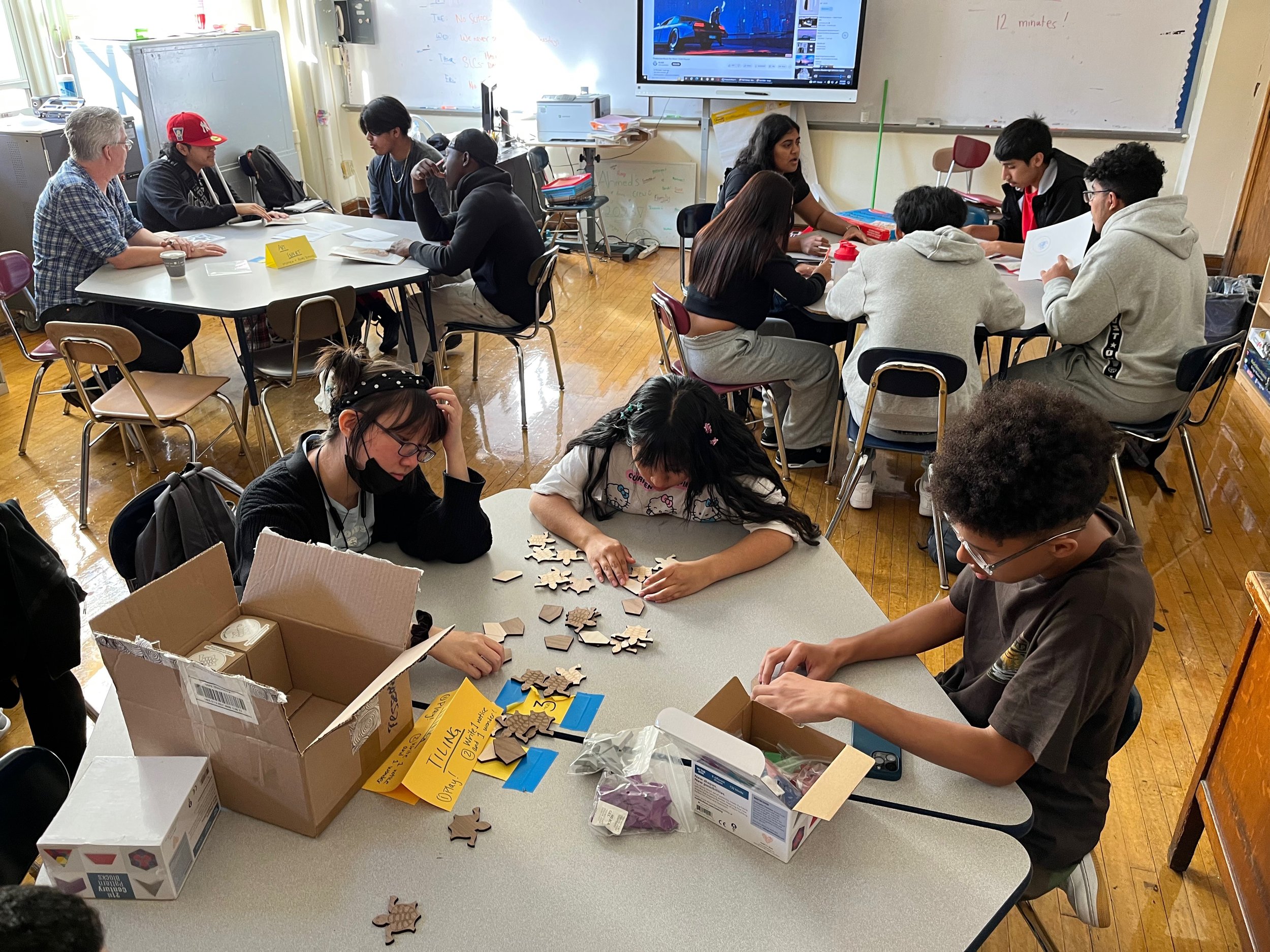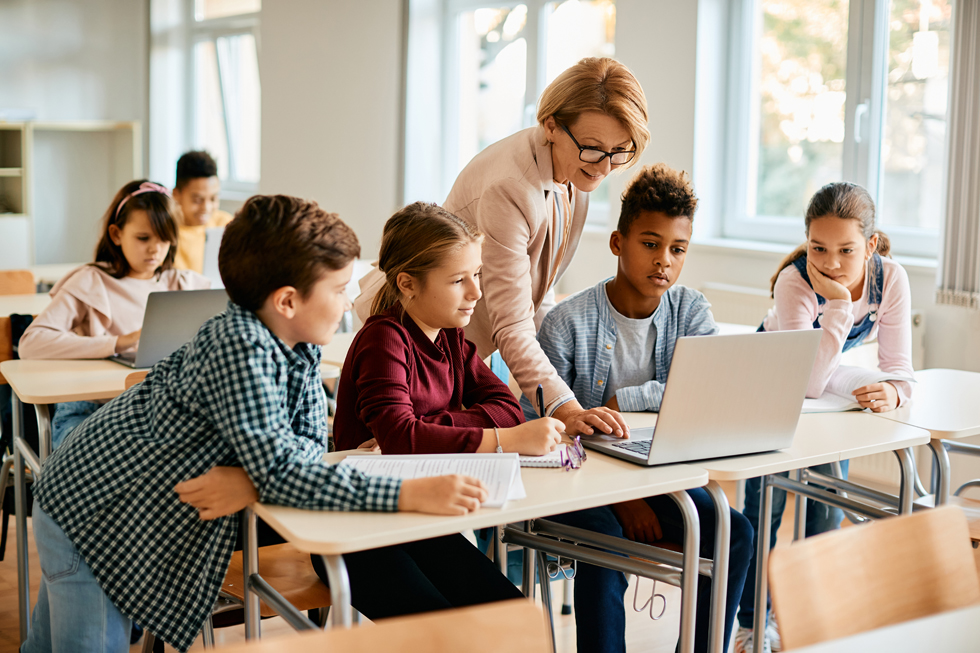Recognizing the Value of Institutions in Kid Development and Area Growth
Schools act as crucial organizations for youngster advancement and neighborhood development, offering settings where scholastic accomplishments are enhanced by the growing of social abilities and direct exposure to varied point of views. These instructional settings not only advertise crucial reasoning and effective communication however additionally foster compassion via collaborative jobs. Schools' interaction with neighborhood areas with service-learning campaigns strengthens the bond in between family members and educational organizations. This cooperative connection underscores the significance of institutions in supporting active citizenship and long-lasting learning practices. What are the particular systems by which these establishments accomplish such profound influences?
Academic Success
Academic success works as a foundation of kid advancement, offering the foundation upon which future knowing and success are built. Schools play a crucial role in fostering this scholastic growth, providing structured environments where youngsters can get vital understanding and cognitive skills. Standard educational program make certain that pupils gain efficiency in core subjects such as mathematics, science, and language arts, which are crucial for both college and professional chances.
Along with presenting basic scholastic skills, schools additionally grow critical reasoning, problem-solving capacities, and intellectual curiosity. These cognitive competencies are essential for navigating intricate real-world situations and adapting to the ever-evolving needs of the modern office. Teachers, as facilitators of understanding, utilize varied pedagogical strategies to deal with varied discovering designs, consequently making best use of private pupil possibility.
In addition, academic success is carefully connected to self-esteem and motivation. Kids that experience academic success are more probable to establish a favorable self-concept and a long-lasting enthusiasm for understanding. Schools likewise offer various resources, such as libraries and technology, which further improve the instructional experience and prepare pupils for a technologically innovative society.
Social Skill Advancement
Beyond academic success, the function of institutions in social ability development is crucial. Schools offer as a primary location for kids to find out and practice necessary social skills such as collaboration, dispute, and communication resolution. In the organized atmosphere of a classroom, students connect with peers, educators, and various other institution team, using many opportunities to create these crucial capacities.
Effective social ability growth in colleges is facilitated through team activities, joint tasks, and extracurricular programs. These interactions help trainees recognize social norms, construct compassion, and foster a sense of area. As an example, team tasks instruct pupils just how to collaborate towards a common objective, pay attention to various viewpoints, and browse differences constructively.

The cultivation of social skills during school years lays a structure for future personal and specialist partnerships. Save Temecula Schools. As trainees develop, the ability to effectively work together and interact ends up being significantly vital, emphasizing the college's crucial function in alternative kid growth
Direct Exposure to Variety
Exposure to diversity in institutions is essential to promoting an inclusive mindset and expanding students' viewpoints. Schools act as a microcosm of the more comprehensive culture, and encountering varied cultures, languages, and socioeconomic histories within this atmosphere outfits trainees with vital abilities for browsing an increasingly globalized world. This direct exposure encourages compassion, lowers prejudices, and promotes mutual respect amongst peers.
Varied classrooms likewise enhance cognitive and social advancement. Research study suggests that students who connect with peers from varied histories display better problem-solving skills and creativity. They discover recommended you read to value various perspectives, which improves classroom discussions and fosters a more vibrant understanding experience. This understanding of diversity prepares pupils for future work environments that value modern capability.

Neighborhood Involvement
The advantages of varied classrooms expand beyond the institution wall surfaces, promoting a strong feeling of community interaction amongst pupils. By engaging with peers from numerous social, socioeconomic, and ethnic backgrounds, trainees gain a wider point of view and a recognition for variety. This direct exposure encourages them to come to be active residents that want to contribute favorably to their neighborhoods.
Institutions that emphasize area interaction commonly integrate service-learning jobs, which allow students to deal with real-world troubles while applying academic abilities. These projects not just enhance pupils' understanding of their coursework however also instill a sense of obligation and empathy. Partnerships between schools and local organizations supply trainees with possibilities to get involved in neighborhood occasions, even more strengthening their role as aggressive community members - Save Temecula Schools.
Additionally, parental and neighborhood involvement in colleges reinforces the bond between instructional institutions and the communities they serve. Through these initiatives, institutions play a pivotal function in supporting community engagement and fostering societal growth.
Lifelong Understanding Practices
Establishing lifelong discovering routines is necessary for a kid's constant growth and adaptability like this in an ever-changing globe. Colleges play a pivotal role in instilling these routines by creating an environment that cultivates inquisitiveness, crucial reasoning, and a love for understanding. Through diverse curricula and extracurricular tasks, educators motivate students to explore different subjects, evaluate info critically, and use their learning to real-world situations.

Furthermore, institutions supply a structured environment where kids can establish self-discipline and time administration skills, both of which are essential for continual learning. By highlighting the importance of setting goals, assessing progression, and adjusting approaches, universities prepare students to navigate the complexities of grown-up life, ensuring they stay long-lasting learners and factors to culture.
Verdict
To conclude, schools are vital in promoting youngster development and community development by offering environments for academic accomplishment, social ability development, and exposure to diversity. Through collective tasks and communications, institutions enhance vital thinking, compassion, and interaction abilities. Community interaction initiatives further enhance the bond between universities and neighborhood areas. Inevitably, colleges grow lifelong learning routines, outfitting individuals with the required knowledge and skills to contribute positively to society.
In the structured environment of a class, trainees interact with peers, teachers, and other school personnel, supplying countless opportunities to establish these critical abilities.
In essence, direct exposure to diversity within schools not just enhances private students yet additionally reinforces the social material of the community as a whole.
The benefits of diverse classrooms extend past the school walls, cultivating a solid sense of community involvement amongst trainees.Colleges that emphasize neighborhood interaction usually include service-learning jobs, which allow trainees to address real-world problems while using scholastic abilities. Collaborations between colleges and regional organizations offer students with possibilities to take part in community occasions, additionally strengthening their function as proactive area participants.